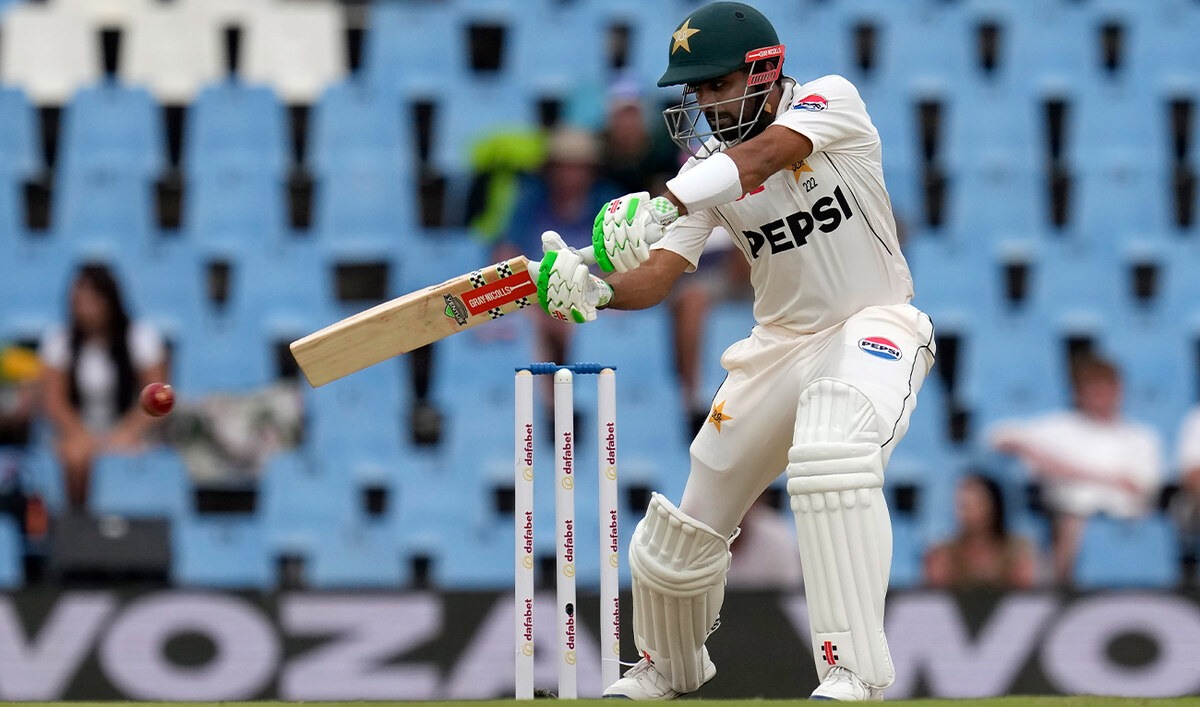ISLAMABAD: The government said on Friday it would start receiving Hajj applications from next week while fixing 50 percent quota for overseas Pakistanis through a sponsorship scheme to receive $194 million in pilgrimage expenses.
The country’s religious affairs minister, Mufti Abdul Shakoor, announce the Hajj Policy 2023 in a news conference, promising to provide maximum facilities to pilgrims and collect only as much money as the cost of facilities arranged for them.
“Fourteen [designated] Pakistani banks will start receiving Hajj applications from 16th of March and the process will continue until the end of the month,” he said. “The names of the pilgrims going to Hajj this year will be announced in the first week of April.”
“It should be noted that on my personal request to the Saudi Minister of Hajj and Umrah, the kingdom kindly reduced the mandatory Hajj duties in comparison to the previous year,” he continued while thanking Saudi Crown Prince Mohammed Bin Salman.
The minister said Pakistan’s national quota for Hajj this year was 179,210 pilgrims, adding the number would be equally divided between public and private schemes and allow them serve 89,605 pilgrims.
Shakoor informed the government had also reserved 50 percent sponsorship quota in public and private schemes for overseas Pakistanis and their local relatives who were willing bear the Hajj expense in US dollars.
“Under the Hajj sponsorship scheme, a special facility has been given to Hajj pilgrims seeking foreign exchange from abroad in the specific dollar account of the religious affairs ministry,” he said, adding that overseas Pakistanis would be able to get exemption from the usual balloting process to finalize the names of people availing the pilgrimage facility under the government scheme.
“Depositing dollars from Pakistan is not allowed,” he clarified. “The foreign exchange earned from the sponsorship scheme will be used to pay Hajj related obligations in Saudi Arabia.”
The minister said the government needed a total of $284 million dollars to facilitate the Hajj, adding the finance ministry had also promised to provide about $90 million.
He said that people availing the sponsorship scheme from the northern region, including Peshawar, Islamabad, Lahore, Multan and Rahim Yar Khan, were going to spend about $4,325. Other pilgrims from the same zone would be required to pay an estimated amount of Rs1,175,000.
For those in the southern belt, he added, Hajj would cost nearly Rs1,165,000 and $4,285.
Other salient features of Hajj Policy 2023 include:
- Regular Hajj scheme applicants must have a single or joint bank account. All banks will assist in opening such accounts.
- There is no age limit for Pakistani pilgrims this year since Saudi Arabia removed the upper limit of 65 years.
- A mahram (chaperone) must accompany female pilgrims. However, women over 45 years of age can go without mahram.
- Pilgrims who have performed Hajj in the last five are not eligible to apply in the regular Hajj scheme.
- Mahram of women going to Hajj for the first time will be exempt from the five-year condition.
- Selection of people in the regular Hajj scheme will be done through computerized balloting, the results of which will appear on the ministry’s website.
- A waiting list of Hajj pilgrims will also be created in which only 0.5 percent of official Hajj quota will be kept.
- All applicants must possess National Identity Cards and Pakistani Machine-Readable Passports which must be valid until December 26, 2023.
- It is important for pilgrims to be physically healthy which will have to be confirmed on the Hajj form by an official doctor. However, persons with disabilities will be considered eligible if they apply along with their mandatory helper.
- Three percent (2,688) of the total seats under the government Hajj scheme will be reserved for hardship cases like newborns or broken families.
- Applicants who fail in the regular Hajj scheme will be able to receive their money within seven days in the bank account provided or in the form of cash from the relevant bank.
- Three hundred seats (for labor quota) will be reserved for low paid employees of companies registered with the Employees Old Age Benefits Institution (EOBI) and Workers Welfare Fund. Their expenses will be borne by their organization. They will be selected through a separate lottery.
- The Hajj policy has no scope for free Hajj.
- Immunization with coronavirus vaccine approved by Saudi Arabia is mandatory.
- It is mandatory to wear a face mask during Hajj in closed and open places while staying in Saudi Arabia.
- Five liters of Zamzam will be provided to all pilgrims while returning home.
- The Hajj Medical Mission, Hajj Assistants and Ministry staff will be deployed as per the established procedures to facilitate, guide and assist the Hajj compatriots in Saudi Arabia.
- The facility of “Road to Makkah” project will continue at the Islamabad Airport which is likely to be extended to Lahore and Karachi.
- Through the Hajj Helpline, pilgrims will be guided and their grievances redressed on a daily basis in Pakistan and Saudi Arabia.
- The list of authorized quota holders Hajj Group Organizers (HGOs) will be released later through the ministry’s website for admission to the private Hajj scheme.
- Trained ministry staff will monitor these HGOs in Saudi Arabia and liaise with private Hajj scheme pilgrims to ensure provision of facilities as per written agreement with pilgrims.



















